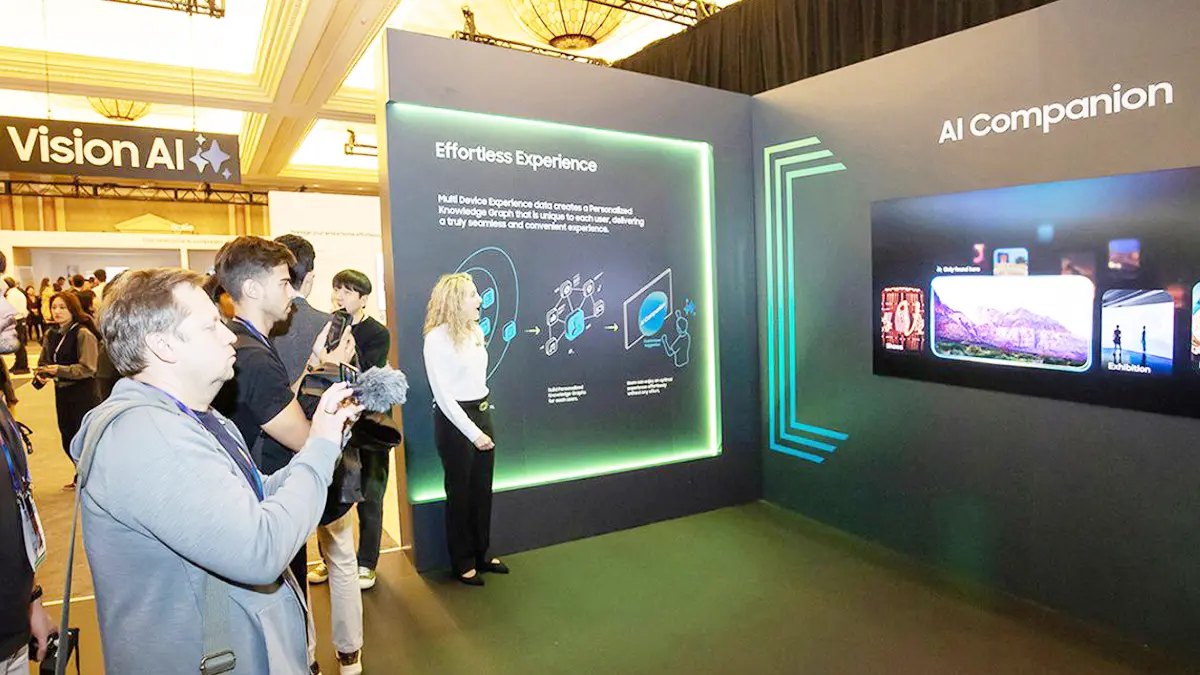At the Consumer Electronics Show (CES) 2025, LG and Samsung announced plans to integrate Microsoft’s Copilot AI assistant into their upcoming smart TVs. The collaboration aims to improve user experience by delivering advanced AI technology directly to TV channels.
LG’s Integration of Copilot
LG has introduced a dedicated “AI Remote” and AI Gateway for its 2025 Smart TV models. These features are designed to help users access information appropriately by finding efficient information based on context. Although LG The Copilot integration has not yet been revealed, but the company expects it will support search and data retrieval. This makes it easier for users to interact with the TV.
Samsung’s Vision AI and Copilot
Samsung’s latest TV set to be It’s a “intelligent companions” by combining AI capabilities that work with other smart home devices. Features like AI upscaling, automatic HDR remastering, and Adaptive Sound Pro aim to improve picture and sound quality. AI button On the remote provides access to AI functions, including Microsoft’s Copilot. This integration allows for real-time personalized content recommendations, such as security alerts. and summarize services in the home.
About Microsoft’s Copilot
Microsoft’s Copilot is an AI assistant that works with Microsoft 365 applications such as Word, Excel, and PowerPoint, helping users create content. Data integration and user experience through the use of open source languages. By integrating Copilot into smart TVs, LG and Samsung are looking to bring similar AI-powered assistance to the home entertainment industry.
Potential Benefits for Users
The integration of Copilot into smart TVs could offer several advantages:
- Enhanced Content Discovery: Users may receive personalized recommendations based on their viewing habits, making it easier to find new shows and movies.
- Improved Accessibility: Voice commands and AI assistance can simplify navigation, especially for users who may find traditional remotes challenging.
- Smart Home Integration: The AI capabilities could allow TVs to serve as central hubs for smart home devices, providing real-time updates and control options.
Considerations and Concerns
While the integration of AI assistants into smart TVs presents exciting possibilities, there are considerations to keep in mind:
- Privacy: With AI assistants processing user data to provide personalized experiences, concerns about data privacy and security may arise.
- User Experience: The effectiveness of AI features will depend on seamless integration and user-friendly interfaces. Overcomplicated systems could detract from the viewing experience.
- Dependence on AI: Relying heavily on AI for content recommendations and smart home interactions may limit user autonomy and choice.
Future Outlook
The collaboration between LG, Samsung and Microsoft signifies the ambitious trend of combining AI with consumer electronics to create intuitive and responsive devices. Due to technological progress Users can expect a more personalized and interactive home entertainment experience.
In summary, the addition of Microsoft’s Copilot AI assistant to LG and Samsung smart TVs in 2025 is an important step towards smart home entertainment solutions. Although this integration promises a better user experience. But it still requires careful consideration in terms of privacy and functionality to ensure it meets consumer expectations.
Read Also
- Windows 10 Users Can Now Get Free Security Updates – Here’s How
- Amazon Expands Kindle Colorsoft Line with More Affordable & Kid-Friendly Models
- Is Yahoo Mail Down Today? Here’s What’s Happening
- What Is “Tea”? The Viral Women-Only Dating Safety App
- iOS 26: Release Timeline, Features, and What to Expect


